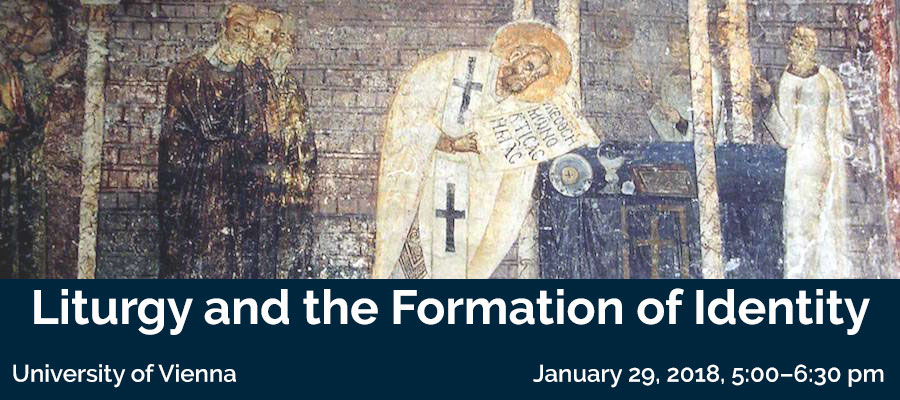Liturgy and the Formation of Identity, University of Vienna, January 29, 2018, 5:00–6:30 pm
The Wittgenstein Project Team invites you to our eleventh group discussion meeting. “Forum Moving Byzantium XI” will take place on Monday 29.01.2018, from 17:00 to 18:30, at the Department of Byzantine and Modern Greek Studies (University of Vienna, Postgasse 7, 1010 Vienna, Staircase 1, Third Floor, Hörsaal).
The Forum Moving Byzantium XI will provide the unique opportunity to discuss with Dr. Daniel Galadza (University of Vienna and Austrian Academy of Sciences) his current work on “Liturgy and the Formation of Identity”.
Dr. Daniel Galadza is Assistant Professor of the Institute for Historical Theology at the University of Vienna and National Research Partner with the "Euchologia Project" at the Austrian Academy of Sciences. He has studied at the University of Toronto and the Pontifical Oriental Institute in Rome and was a junior fellow at the Dumbarton Oaks Research Library and Collection in Washington DC. His monograph Liturgy and Byzantinization in Jerusalem was recently published by Oxford University Press.
After a brief introduction in English, a group discussion will follow on the basis of the following preparatory readings (to be read in sequence):
- Robert F. Taft, Through Their Own Eyes: Liturgy as the Byzantines Saw It (Berkeley, Ca.: InterOrthodox Press, 2006), pp. 29–67.
- Derek Krueger, Liturgical Subjects: Christian Ritual, Biblical Narrative, and the Formation of the Self in Byzantium, Divinations: Rereading Late Ancient Religion (Philadelphia: University of Pennsylvania Press, 2014), pp. 1–28.
- Daniel Galadza, "Patriarchs, Caliphs, Monks, Scribes and the Byzantinization of Jerusalem’s Liturgy,"
- Dumbarton Oaks 2016 Symposium Paper (forthcoming).
- (Optional) Christian Hannick, “Annexions et reconquêtes byzantines: Peut-on parler d’«uniatisme» byzantin?” Irénikon 66 (1993), pp. 451–474.
Some of the questions that will be put forward for discussion are:
- How influential was liturgy and religious practice in the daily life of an “average” Byzantine citizen and in Byzantine society?
- Are the extant sources, Byzantine authors, and/or current scholars presenting an idealized or a representative view of liturgy in the life of Byzantines?
- What considerations were given to the role of liturgy in forming a society or in imperial policy?
RSVP required.
